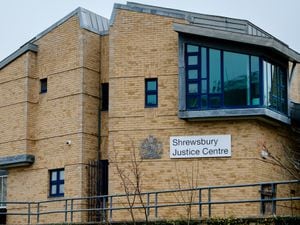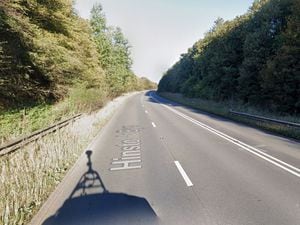County barristers to go back to work after vote to suspend industrial action
Barristers in the county will return to work after industrial action, as Shropshire's crown court backlog stands at more than 500 cases.

The majority of criminal barristers are returning to duties today after voting to end a walk-out over legal aid fees and conditions.
The move comes after an agreement over a 15 per cent pay offer from the Government to resolve the dispute.
Michelle Heeley KC, leader of the Midlands Circuit which represents Shrewsbury Crown Court, and a barrister at No5 Barristers’ Chambers, said members of the Criminal Bar Association (CBA) will now be working to address the backlog of cases.
But, she warned that the backlog had existed before the coronavirus pandemic and added that the Government needs to invest more in the courts.
Ministry of Justice data shows there were 547 outstanding cases at Shrewsbury Crown Court at the end of June.
That was up from 521 at the end of March, and 515 at the same point in 2021.
Uncompleted case numbers are 90 per cent higher than they were prior to the coronavirus pandemic – in June 2019, there were 288 cases outstanding at Shrewsbury Crown Court.
Of the cases outstanding at the end of June, 143 – 26 per cent, related to alleged violent attacks, and 75 – 14 per cent, were for sex offences, including 17 alleged rapes.
At Stafford there are 515 outstanding cases compared to 476 in 2021. Prior to the pandemic there were 270 cases outstanding the previous year.
The Law Society of England and Wales said public trust in the criminal justice system is in "jeopardy" with victims of even the most serious crimes waiting years to get their case heard.
Miss Heeley said: "We must now concentrate on reducing the backlog which existed long before Covid and the bar action. The reality is that we need more judges, court rooms, court staff, in short, greater investment in the criminal justice system as a whole.
"Only once we see that will we begin to make inroads into the backlog. Technology has a role to play and we hope that courts embrace the advances we have made since Covid brought about the greater use of remote hearings.
“The result of the Criminal Bar Association vote means that criminal barristers will be returning to court today. I welcome the proposed increase and the commitment to a pay review body.
"Whilst a majority voted in favour of accepting the new terms one cannot ignore a large proportion of barristers who voted against acceptance. There is a real fear that the proposed measures will not go far enough to protect the most junior, and encourage retention and diversity.
"My hope is that the proposed pay review body will prevent disputes such as this arising in the future, it is important that the Government engage with the review body and works with barristers to remedy some of the inequalities currently within the fee structure. We must also ensure solicitors are properly remunerated so that we don’t lose even more firms."
Steve Scully, a solicitor from Shropshire firm Lanyon Bowdler, who appears at Shrewsbury Crown Court, said the latest development was welcome, but that concerns would remain over investment and the "chronic underfunding" of the courts system.
He said: "Looking at the results it appears a slight majority voted to return to work so they will be in a position to take on new work and carry on with existing cases.
"I think the backlog in the courts is now 60,000 cases across the country and clearly from a local point of view appearing before the crown court I have seen the consequences of delays on a number of cases. It remains to be seen how quickly those delays can be reduced."
Mr Scully said he was cautiously optimistic about the deal, adding: "In theory it is good news for victims, defendants, witnesses, and the system as a whole as we can begin a process of getting back to normal, but it looks to be a long road."
A total of 57 per cent voted to accept the deal after Justice Secretary Brandon Lewis proposed further reforms to government-set fees for legal aid advocacy work.
The offer represents “further investment of £54 million in the criminal bar and solicitors”, according to the Ministry of Justice.
Barristers belonging to the CBA had been taking part in a continuous walkout after a row with the government over fees and conditions intensified in the summer.





